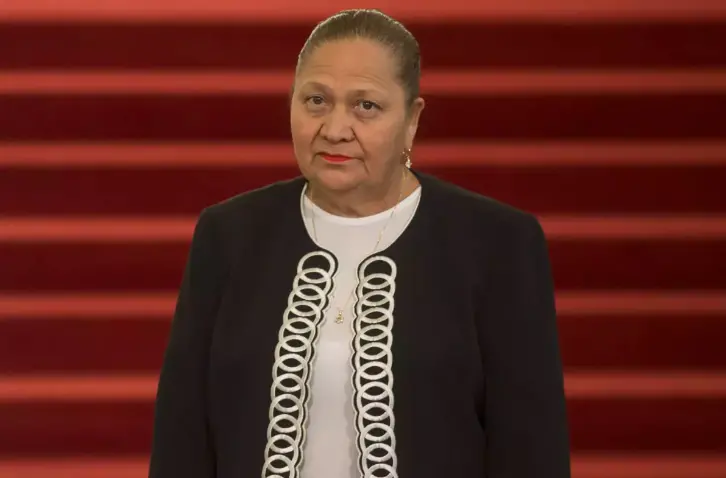The European Union announced on Friday that it imposed sanctions on Guatemala’s attorney general, Consuelo Porras, for undermining democracy, the rule of law and the peaceful transfer of power in the Central American country.
The sanction also reaches the secretary general of the prosecutor’s office, Ángel Pineda; the head of the Special Prosecutor’s Office Against Impunity, Rafael Curruchiche; the prosecutor Leonor Eugenia Morales Lazo de Sánchez and the judge Fredy Raúl Orellana Letona, who has ordered judicial actions against the electoral process at the request of the prosecutors.
This is the first time that the EU sanctions Guatemalan citizens, said the entity in Guatemala.
In a press release the EU said the sanctions include an asset freeze and a ban on making funds available to them, as well as a travel restriction, preventing entry into or transit through community territories.
“Today’s decision follows the adoption, on January 12, 2024, of a specific framework for restrictive measures in support of democracy and a peaceful and orderly transfer of power in Guatemala,” he added.
In a press release, the prosecutor’s office “categorically” rejected the accusations that it described as “spurious, malicious and anti-democratic propitiated by the European Council”.
“These systematic attacks seek to intimidate and coerce officials of the Public Prosecutor’s Office and pose a serious threat to the regime of legality and democracy in Guatemala,” said the Attorney General’s Office.
It also qualified the accusations as arbitrary: “We must assume that this international entity dedicates time to carry out unofficial defenses with absolute ignorance of the control system of constitutional guarantees of the State of Guatemala”.
Since June 2023, the prosecution sought to stop the participation of the new president Bernardo Arévalo in the elections just after he went to a runoff against the former first lady Sandra Torres, whom he won the presidency by a lead of more than 20 points.
It was then that the prosecutor’s office asked Judge Orellana to suspend the legal personality of the Movimiento Semilla party that carried Arevalo to the presidency. Until today, the judge’s decision has left the president without a political party in Congress and his 23 deputies cannot participate in parliamentary commissions or as a block.
The judicial actions of the prosecutor’s office extended to the electoral process, the electoral magistrates, Arevalo and his vice-president Karin Herrera, members of his party, electoral workers and even citizens who participated in the collection, counting and safeguarding of the votes.
Orellana also ordered the seizure of the minutes and votes of the elections, something that was harshly criticized because the law exclusively empowers the Supreme Electoral Tribunal the custody and safekeeping of such material.
The EU High Representative, Josep Borrell, participated on January 14 in the inauguration of President Arevalo, when members of the previous and new Congress tried to block the election of a new Board of Directors that should have sworn him in, delaying his investiture.
Borrell said that when he traveled to the country he did so thinking that the presence of him and other international guests “would not only send a strong message of support for democracy in Guatemala but a strong signal to the obstructionists that circumventing democratic processes would not be tolerated by the government, the international community” and added that the EU was ready to adopt new measures to “demand accountability from those responsible”.

